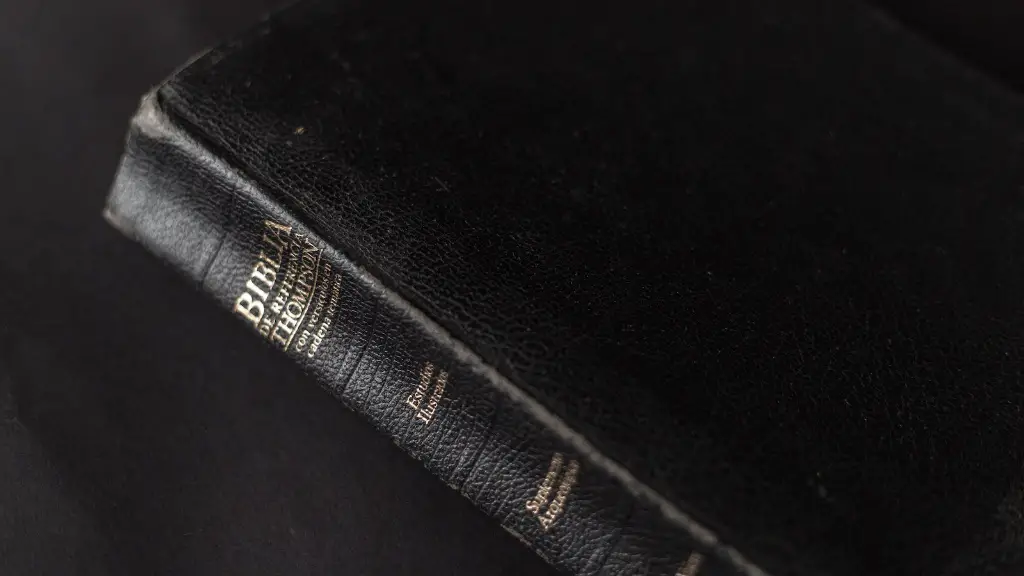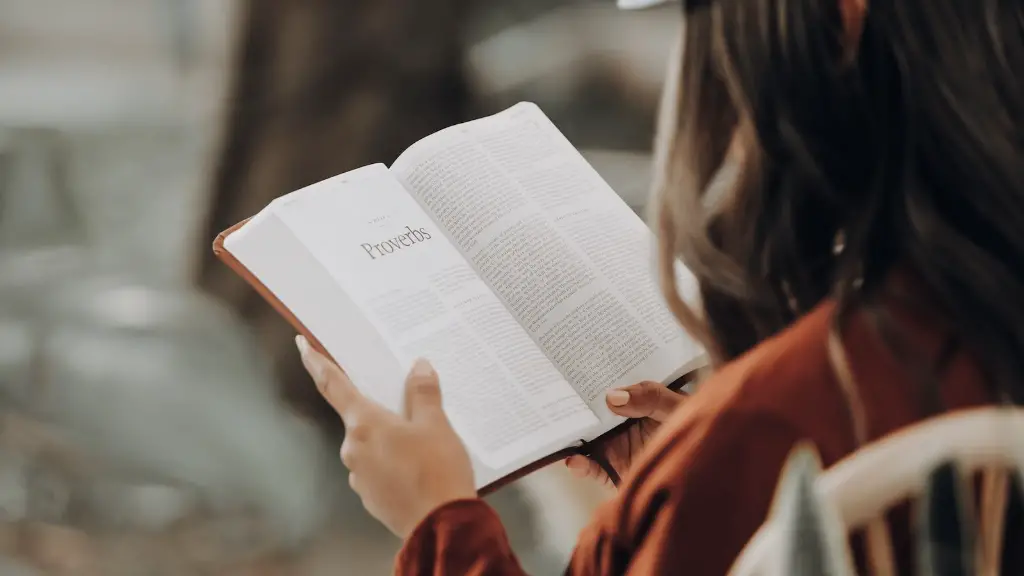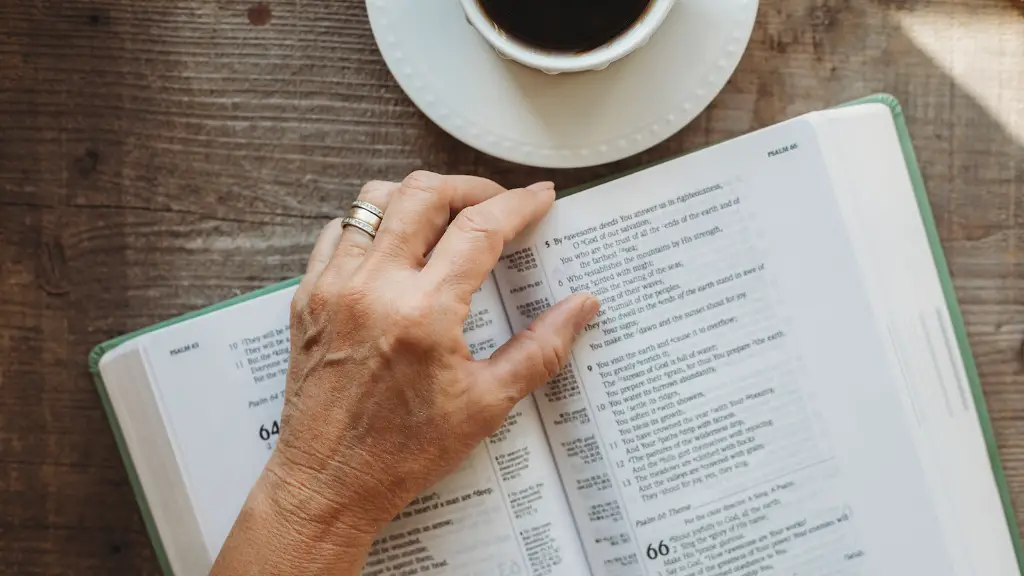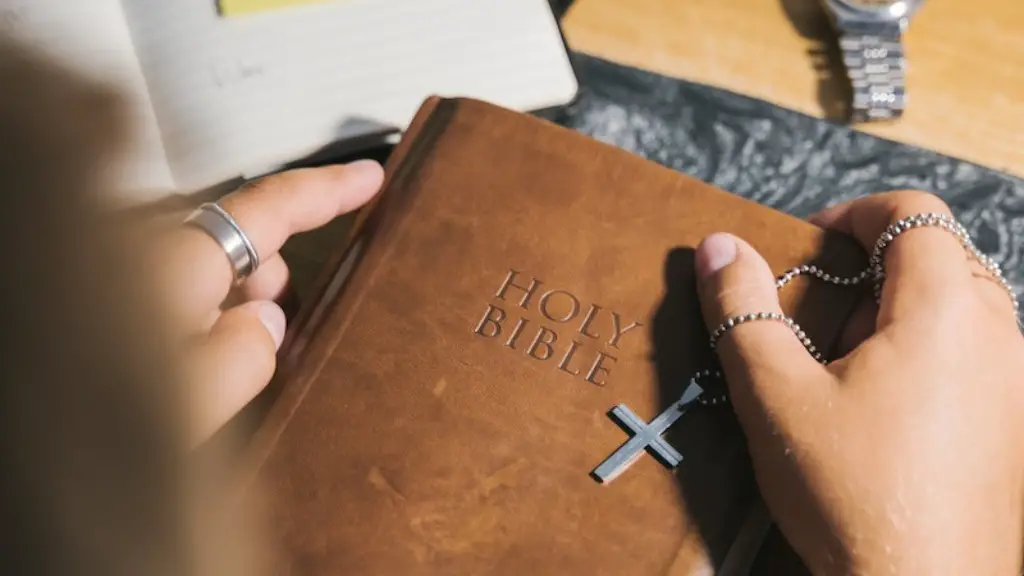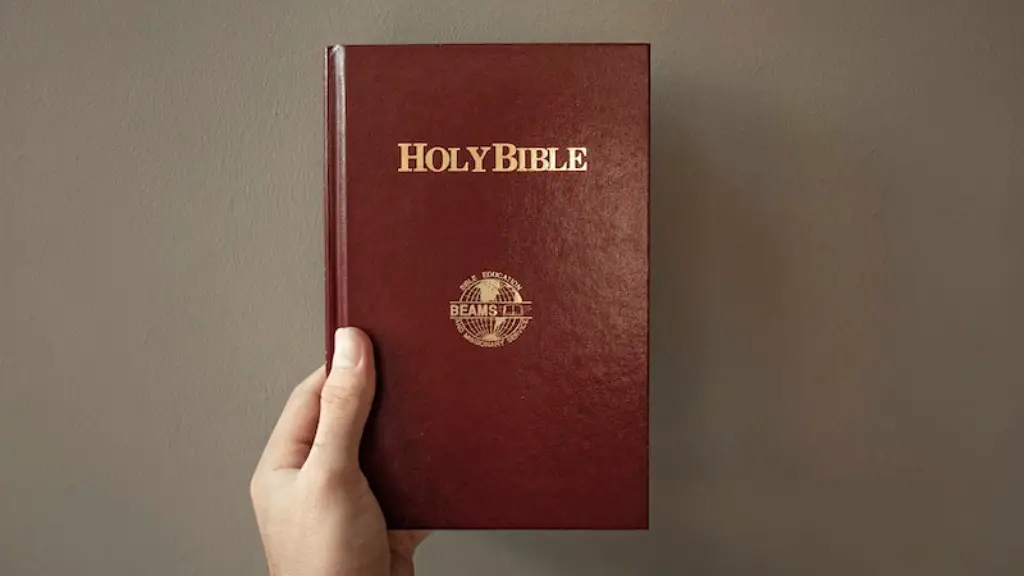The Lord’s Supper, also known as Communion or the Eucharist, is an important part of Christian worship. It is a time when the entire congregation of believers gathers together to remember and reaffirm the death and resurrection of Jesus. In Communion, Christians take part in both the physical and spiritual elements of the Lord’s Supper. Physically, we partake in the bread and wine, and spiritually, we recognize our need for Jesus and his sacrifice for us. But, where is Communion in the Bible?
The most well-known passage about Communion is found in Matthew 26, Mark 14, and Luke 22. These passages detail Jesus’ last supper with his disciples, and gives the instructions for how we are to partake in Communion today. In the gospel of John, Jesus speaks about Communion in no less than three separate encounters. In John 6:53, Jesus says, “Very truly I tell you, unless you eat the flesh of the Son of Man and drink his blood, you have no life in you.” Later, in John 14:15, he speaks of the importance of Communion, saying, “Whoever eats my flesh and drinks my blood has eternal life, and I will raise them up at the last day.” Finally, John 15:3-5 speaks of Communion centering around a new covenant, with Jesus saying, “This is my blood of the covenant, which is poured out for many for the forgiveness of sins.”
Experts explain that in Jesus’ time, Passover meals were very important in both the Jewish and Christian culture. As such, many of Jesus’ teachings revolved around the Passover Meal. It is believed that Jesus mixed the symbolic elements of the Passover meal with the symbols of his own sacrifice – the bread and the wine – to point to his own impending death. During the passover, he asked his disciples to “Take, eat” and “Drink from it, all of you.” This was Jesus’ way of explaining to his disciples that they must partake in his body and blood in order to remember his death and resurrection. In this way, Jesus was establishing a new covenant between him and his followers.
Within the context of the Bible, Communion is a means of thanksgiving, renewal, and remembrance. During Communion, Christians come together in unity to remember the death and resurrection of Jesus and to renew their covenant with him. Through Communion, Jesus reminds us of his sacrificial love and grace, and reminds us of our need for him and his mission. Communion is a very real expression of our faith and our need for the Lord.
Communion In Paul’s Writing
The apostle Paul wrote extensively about Communion in some of his letters to the churches. He writes of it as a periodic reminder of Jesus’ sacrifice. He highly encourages its observance at set times, saying in one of his letters to the Corinthians, “For as often as you eat this bread and drink the cup, you proclaim the Lord’s death until he comes” (1 Cor 11:26). Paul also explains its purpose, saying, “The Lord Jesus on the night when he was betrayed took bread, and when he had given thanks, he broke it and said, “This is my body which is for you. Do this in remembrance of me” (1 Cor 11:23-24).
From these passages, it is clear that Paul wanted the Church to celebrate Communion often and that the bread and the cup should serve to remind them of Jesus’ sacrifice. Additionally, he teaches that Communion is both a celebration of Jesus’ past, present, and future. Paul explains that through Communion, believers can look back to the death and resurrection of Jesus and look ahead to his second coming.
Passover Meal & Lord’s Supper
Another look at Communion in the Bible comes from comparing the Passover meal to the Lord’s Supper. The Passover meal was a tradition of the Israelites, and it commemorated the time when God brought them out of slavery in Egypt and set them free. As mentioned earlier, Jesus and his disciples partook in a Passover meal during his last supper. There are several similarities between the Passover meal and the Lord’s Supper. In each one, bread and wine are shared. In both meals, the bread is broken and shared, and Communion is a time for celebrating and remembering the relationship between God and His people.
Despite these similarities, the two meals are also different in important ways. In the Passover meal, the bread symbolizes freedom and the deliverance from slavery, while in the Lord’s Supper, the bread symbolizes Jesus’ death on the cross and the sacrifice he made for us. Additionally, the Lord’s Supper includes the significance of the resurrection, while the Passover meal does not.
Communion & Baptism
Though there are stark differences between Communion and Baptism, they share the same purpose. Just as Communion is the means by which believers remember and proclaim Jesus’ death and resurrection, Baptism is the means by which they make a public profession of their faith, and symbolize their spiritual death and rebirth. Together, these two ordinances serve as tangible reminders of Jesus’ love and grace, but also of the believer’s commitment to Jesus and His mission.
With Communion and Baptism, both the physical and spiritual elements are essential. In Communion, Christians remember the physical body and blood of Jesus, and in Baptism, they enter into a new spiritual rebirth. Jesus taught his disciples to “do this in remembrance of me” when it came to Communion, and he said, “unless you are born again, you will not enter the Kingdom of heaven” when it comes to Baptism. Both Communion and Baptism work together to remind us today of Jesus’ ministry, death, and resurrection.
Communion in the Christian Church
Today, Communion is an integral part of Christian worship services, and it is celebrated around the world in various ways. Some churches have Communion services once a month, while others have weekly or seasonal services. Irrespective of the frequency of the services, Communion is an important time for Christians to come together, remember Jesus’ death and resurrection, and to renew their covenant with God.
At Communion, bread and wine are generally shared, and these physical elements represent the body and blood of Jesus. However, the symbolism of Communion doesn’t end with the bread and wine. While we break the bread and pour the wine, we remember Jesus’ sacrifice for us and the new covenant he established. We also remember our own commitment to him and his mission. And, as we partake in Communion, we proclaim Jesus’ death and future return until that time when He comes again.
Communion & the Scriptures
The Bible has much to say about Communion and the importance of observing it regularly. Numerous passages throughout the New Testament speak to the physical and spiritual elements of Communion as well as the foundational aspects of the new covenant Jesus established. Additionally, the Lord’s Supper is full of symbolism and meaning. It is a reminder of Jesus’ death, our commitment to him, and the eternal bond we share in the new covenant.
In this way, Communion is a powerful reminder of Jesus’ great love for us and a beautiful photo of the way in which we declare his gospel and mission. As we partake in Communion, we are stepping into the narrative Jesus initiated on that night when He shared his last supper with his disciples. We are a part of that story, and we make our covenant with the Lord anew as we celebrate His death and look forward to His coming again.
Communion & the Sacrificial Lamb
At the Last Supper, Jesus linked the Lord’s Supper to the Passover meal by emphasizing the sacrificial element of the Lord’s Supper. In the Passover meal, the lamb is the sacrificial element and it is the centerpiece of the meal, pointing to God’s deliverance of the Israelites from slavery. In the same way, the bread and the wine of Communion points to Jesus’ ultimate sacrifice for us, and His death and resurrection that sets us free from sin. Jesus is the Lamb of God, who takes away the sins of the world.
At Communion, we not only honor Jesus’ death and resurrection, but we also recognize His promise of everlasting life and victory over death. In the same way, we recognize that it is only through Jesus and His sacrifice (and our acceptance of it) that we will receive forgiveness for our sins and eternal life. We remember the Lamb of God and we proclaim His death until He comes again.
Communion & the New Covenant
Another element of Communion that is present throughout the New Testament is the idea of a New Covenant. A Covenant is a solemn agreement between two or more parties, and in Communion, Jesus initiated a New Covenant with his disciples. In Communion, Jesus sealed that covenant with his own body and blood, and it was a covenant in which he would give himself completely for the redemption of mankind. By participating in Communion and by renewing that covenant with God, Christians proclaim the gospel of Jesus and his ultimate sacrifice.
At Communion, believers are empowered to proclaim the New Covenant in the very same way that the early church did, and in doing so, we proclaim Jesus’ death and resurrection until He comes again. Through Communion, we are participating in a covenant of grace and redemption, and we are testifying to the goodness and mercy of God.
Communion & the Table of Fellowship
In the New Testament, Communion is also referred to as the “Table of the Lord” or the “Table of Fellowship.” The “Table of the Lord” indicates that Communion is a time for fellowship, for remembering and for proclaiming the gospel of Jesus. It is a time for believers to share in the Communion experience and to remember their commitment to Jesus and each other. At the Table of the Lord, we are joining in a special covenant of grace and redemption, and we are united in spirit and in truth.
At the Table of Fellowship, we also experience a unique unity among all believers. No matter our language, culture, or background, we are all seated at the same Table. The table binds us together in the spiritual realm, and the elements of Communion unite us in its physical realm. It is a visible sign of our unity with Jesus and with one another.
